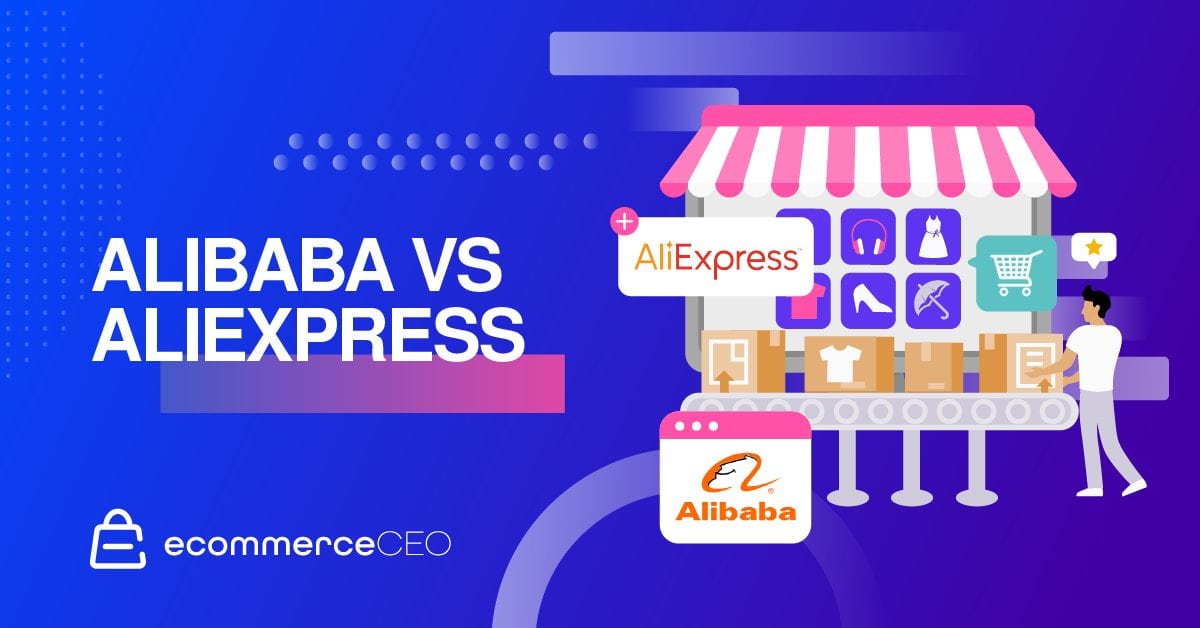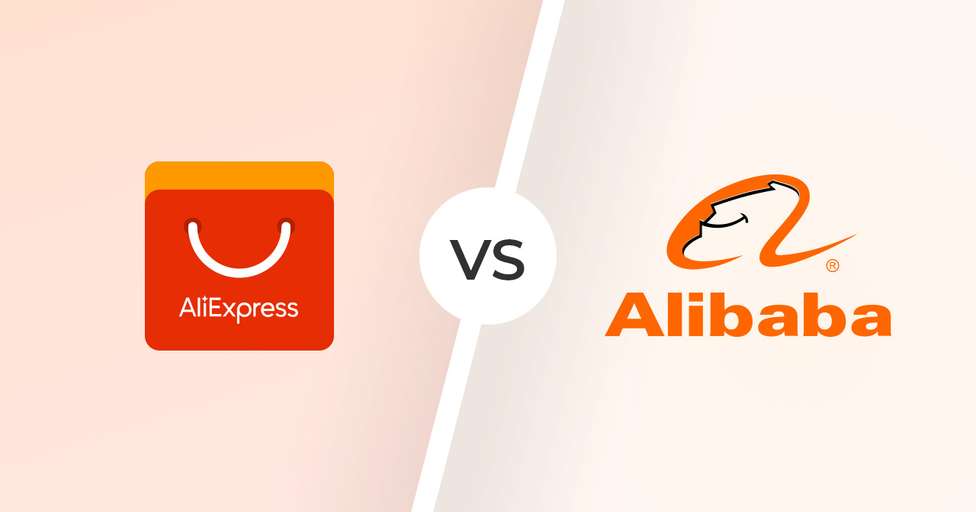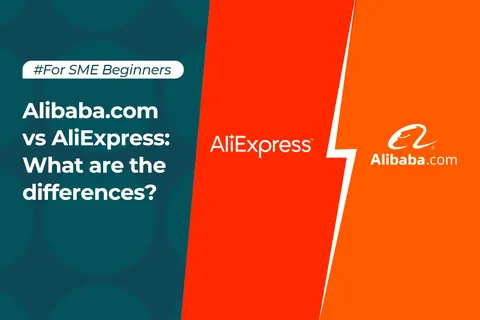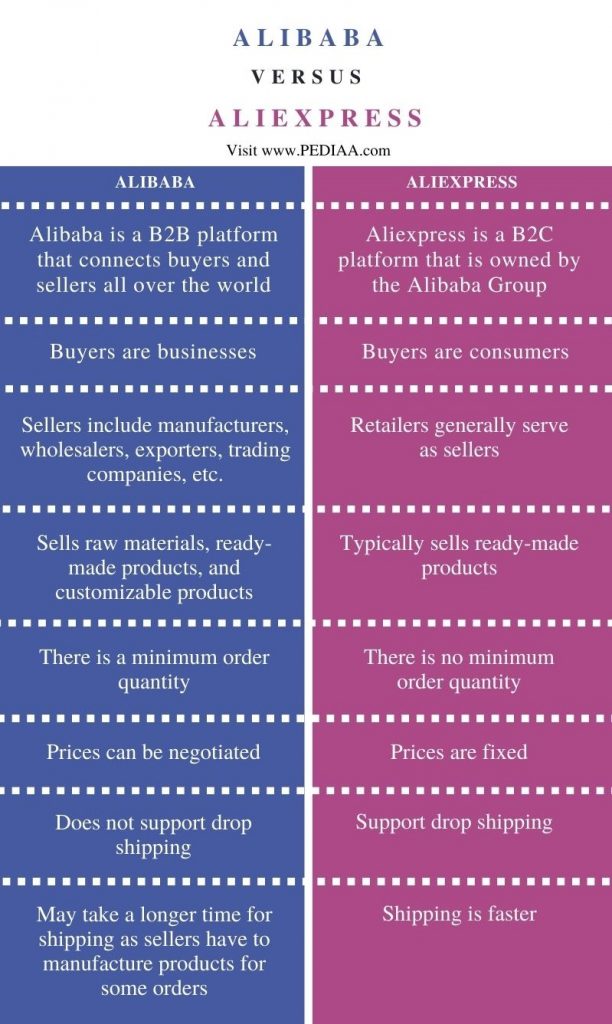Navigating the World of Online Wholesale Marketplaces
The rise of online wholesale marketplaces has revolutionized the way businesses and individuals purchase goods. Among the numerous platforms that have emerged, Alibaba and AliExpress are two of the most prominent players in this space. However, the similarities in their names and services often cause confusion among buyers, leading to the question: what’s the difference between Alibaba and AliExpress? To answer this, it’s essential to understand the concept of online wholesale marketplaces and how these two platforms operate.
Online wholesale marketplaces connect buyers with suppliers from around the world, enabling them to purchase goods in bulk or as individual units. These platforms have gained immense popularity due to their ability to provide a vast array of products at competitive prices, convenient shipping options, and a secure payment system. Alibaba and AliExpress are two such platforms that have capitalized on this trend, but they cater to different markets and offer distinct services.
Alibaba, founded in 1999, is a business-to-business (B2B) platform that primarily connects suppliers from China with buyers worldwide. It offers a vast array of products, including electronics, clothing, and home goods, among others. AliExpress, launched in 2010, is a business-to-consumer (B2C) platform that allows individuals to buy directly from Chinese manufacturers. While both platforms share some similarities, their target audiences, business models, and services differ significantly.
Understanding the differences between Alibaba and AliExpress is crucial for buyers to make informed purchasing decisions. By recognizing the unique features and benefits of each platform, buyers can navigate the world of online wholesale marketplaces with confidence and find the best deals for their needs.
What is Alibaba and How Does it Work?
Alibaba is a Chinese e-commerce company founded in 1999 by Jack Ma and a group of 17 entrepreneurs. Initially, the platform focused on connecting Chinese suppliers with international buyers, but it has since expanded to become a global online wholesale marketplace. Alibaba’s business model is centered around business-to-business (B2B) transactions, providing a platform for suppliers to showcase their products and connect with buyers from around the world.
Alibaba’s platform allows suppliers to create virtual storefronts, showcasing their products and services to a vast audience. Buyers can browse through these storefronts, compare prices, and negotiate deals with suppliers directly. Alibaba also offers a range of tools and services to facilitate transactions, including payment processing, logistics, and trade financing.
One of the key features of Alibaba is its focus on B2B transactions. Unlike AliExpress, which caters to individual consumers, Alibaba is designed for businesses and entrepreneurs looking to purchase goods in bulk. This focus on B2B transactions has enabled Alibaba to establish itself as a leading platform for global trade, with millions of suppliers and buyers using the platform every day.
Alibaba’s success can be attributed to its ability to bridge the gap between Chinese suppliers and international buyers. By providing a platform for suppliers to showcase their products and connect with buyers, Alibaba has enabled the growth of global trade and commerce. However, the platform’s focus on B2B transactions also raises questions about its suitability for individual consumers, highlighting the need to understand the differences between Alibaba and AliExpress.
Uncovering the Benefits of AliExpress for Online Shoppers
AliExpress is a popular online retail platform that allows consumers to buy directly from Chinese manufacturers. Launched in 2010, AliExpress has become a go-to destination for online shoppers looking for affordable and trendy products. With a vast array of products to choose from, including electronics, fashion, and home goods, AliExpress has become a major player in the e-commerce industry.
One of the main advantages of using AliExpress is its competitive pricing. By cutting out intermediaries and connecting buyers directly with manufacturers, AliExpress is able to offer products at significantly lower prices than traditional retailers. Additionally, AliExpress offers a wide range of products, including many that are not available on other platforms.
Another benefit of using AliExpress is its convenient shipping options. With a network of logistics partners around the world, AliExpress is able to offer fast and reliable shipping to many countries. This makes it an attractive option for online shoppers who want to get their products quickly and efficiently.
AliExpress also offers a range of payment options, including credit cards, PayPal, and online banking. This makes it easy for buyers to pay for their products securely and conveniently. Additionally, AliExpress has a buyer protection policy in place, which provides a level of security for buyers in case something goes wrong with their transaction.
While AliExpress is a popular platform for online shoppers, it’s essential to understand its differences with Alibaba. By knowing the unique features and benefits of each platform, buyers can make informed decisions about which one to use for their online shopping needs.
Key Differences Between Alibaba and AliExpress
When it comes to online wholesale marketplaces, Alibaba and AliExpress are two of the most prominent players in the industry. While both platforms are owned by the same company, Alibaba Group, they cater to different audiences, offer distinct features, and have varying business models. Understanding the differences between Alibaba and AliExpress is crucial to making informed purchasing decisions. So, what’s the difference between Alibaba and AliExpress?
One of the primary differences between the two platforms is their target audience. Alibaba is primarily a B2B (business-to-business) platform, connecting buyers with suppliers from China and other countries. It’s ideal for businesses, entrepreneurs, and individuals looking to purchase products in bulk. On the other hand, AliExpress is a B2C (business-to-consumer) platform, allowing consumers to buy directly from Chinese manufacturers. It’s perfect for individuals looking for affordable products in small quantities.
Another significant difference is the business model. Alibaba operates on a wholesale model, where buyers can purchase products in bulk at discounted prices. AliExpress, however, operates on a retail model, where consumers can buy individual products at competitive prices. Additionally, Alibaba requires buyers to negotiate prices and terms with suppliers, whereas AliExpress offers fixed prices and a more streamlined checkout process.
The product offerings on both platforms also differ. Alibaba offers a vast array of products, including raw materials, machinery, and electronics, which are often sold in bulk. AliExpress, on the other hand, focuses on consumer goods, such as clothing, accessories, and home appliances. While both platforms offer a wide range of products, Alibaba’s selection is more geared towards businesses and entrepreneurs.
Payment options and shipping policies also vary between the two platforms. Alibaba typically requires buyers to pay via wire transfer, letter of credit, or other traditional payment methods. AliExpress, however, offers a range of payment options, including credit cards, PayPal, and online banking. In terms of shipping, Alibaba often requires buyers to arrange their own shipping, whereas AliExpress offers a range of shipping options, including free shipping on many products.
Finally, the level of customer support and protection differs between the two platforms. Alibaba offers a range of services, including supplier verification, payment protection, and dispute resolution. AliExpress also offers buyer protection, including a money-back guarantee and a rating system for suppliers.
In conclusion, understanding the differences between Alibaba and AliExpress is essential to making informed purchasing decisions. By knowing the target audience, business model, product offerings, payment options, and shipping policies of each platform, buyers can choose the one that best suits their needs. Whether you’re a business looking for bulk purchases or an individual seeking affordable products, both Alibaba and AliExpress offer a range of benefits and opportunities. So, what’s the difference between Alibaba and AliExpress? The answer lies in their distinct features, business models, and target audiences.
How to Choose Between Alibaba and AliExpress for Your Online Shopping Needs
With the numerous benefits and advantages of using Alibaba and AliExpress, it can be challenging to decide which platform is best suited for your online shopping needs. To make an informed decision, it’s essential to consider several factors, including product type, quantity, budget, and shipping preferences. By evaluating these factors, you can determine whether Alibaba or AliExpress is the better choice for your specific requirements.
Product type is a crucial factor to consider when deciding between Alibaba and AliExpress. If you’re looking for raw materials, machinery, or electronics in bulk, Alibaba is likely the better choice. However, if you’re searching for consumer goods, such as clothing, accessories, or home appliances, AliExpress is a more suitable option. Additionally, if you’re looking for customized or personalized products, Alibaba’s suppliers may offer more flexible options.
Quantity is another essential factor to consider. If you need to purchase products in large quantities, Alibaba’s wholesale model may be more cost-effective. However, if you’re looking to buy smaller quantities or individual products, AliExpress’s retail model is likely a better fit. It’s also worth noting that Alibaba often requires a minimum order quantity, which can be a barrier for small businesses or individuals.
Budget is also a critical consideration when choosing between Alibaba and AliExpress. Alibaba’s wholesale prices can be significantly lower than AliExpress’s retail prices, especially for large quantities. However, Alibaba’s suppliers may also charge additional fees for services such as shipping, customs clearance, and product inspection. AliExpress, on the other hand, often offers free shipping and competitive pricing, making it a more budget-friendly option for small purchases.
Shipping preferences are also an important factor to consider. Alibaba often requires buyers to arrange their own shipping, which can be time-consuming and costly. AliExpress, however, offers a range of shipping options, including free shipping, expedited shipping, and tracked shipping. If you need fast and reliable shipping, AliExpress may be the better choice.
Ultimately, the decision between Alibaba and AliExpress depends on your specific needs and requirements. By evaluating factors such as product type, quantity, budget, and shipping preferences, you can make an informed decision and choose the platform that best suits your needs. Whether you’re a business looking for bulk purchases or an individual seeking affordable products, both Alibaba and AliExpress offer a range of benefits and opportunities.
To further help you make a decision, consider the following questions:
- What type of product are you looking for?
- How many products do you need to purchase?
- What is your budget for the purchase?
- Do you need fast and reliable shipping?
By answering these questions, you can determine whether Alibaba or AliExpress is the better choice for your online shopping needs. Remember to also consider the potential risks and pitfalls associated with each platform, and take steps to mitigate these risks and ensure a smooth transaction.
Common Pitfalls to Avoid When Using Alibaba or AliExpress
While Alibaba and AliExpress offer a range of benefits and opportunities for online shoppers, there are also potential pitfalls to be aware of. By understanding these risks and taking steps to mitigate them, you can ensure a smooth and successful transaction.
One of the most significant risks when using Alibaba or AliExpress is the potential for scams. Scammers may pose as legitimate suppliers, offering fake or low-quality products at inflated prices. To avoid scams, it’s essential to research suppliers thoroughly, checking their ratings, reviews, and certifications. Look for suppliers with a high rating (above 4.5) and a large number of reviews. Also, be wary of suppliers who ask for payment via wire transfer or other unsecured methods.
Another risk is the potential for counterfeit products. Counterfeit products can be difficult to spot, but there are some red flags to look out for. Be wary of products that are significantly cheaper than similar products from other suppliers. Also, check the product’s packaging and labeling for any signs of tampering or poor quality. If you’re unsure about the authenticity of a product, it’s best to avoid it altogether.
Communication breakdowns are also a common pitfall when using Alibaba or AliExpress. Language barriers and cultural differences can lead to misunderstandings and miscommunications. To avoid communication breakdowns, it’s essential to clearly communicate your needs and expectations to the supplier. Use simple language and avoid using technical jargon or complex terminology. Also, be patient and allow time for the supplier to respond to your inquiries.
Payment and shipping issues are also potential pitfalls to be aware of. Alibaba and AliExpress offer a range of payment options, but some methods are more secure than others. Avoid using wire transfer or other unsecured methods, and opt for payment methods like PayPal or credit cards instead. Also, be aware of the shipping policies and procedures of the supplier, and make sure you understand the estimated delivery time and any potential customs or import fees.
To mitigate these risks and ensure a smooth transaction, it’s essential to take a few precautions. First, research the supplier thoroughly and check their ratings and reviews. Second, clearly communicate your needs and expectations to the supplier. Third, use secure payment methods and be aware of the shipping policies and procedures. Finally, be patient and allow time for the supplier to respond to your inquiries.
By being aware of these potential pitfalls and taking steps to mitigate them, you can ensure a successful and stress-free transaction on Alibaba or AliExpress. Remember to always prioritize caution and do your research before making a purchase. With the right mindset and approach, you can navigate the world of online wholesale marketplaces with confidence and success.
Maximizing Your Online Shopping Experience with Alibaba and AliExpress
To get the most out of Alibaba and AliExpress, it’s essential to understand how to navigate these platforms effectively. By following a few expert tips, you can find reliable suppliers, negotiate prices, and track shipments with ease.
First and foremost, research is key when it comes to finding reliable suppliers on Alibaba and AliExpress. Look for suppliers with a high rating (above 4.5) and a large number of reviews. Check their product offerings, pricing, and shipping policies to ensure they meet your needs. Also, be wary of suppliers who have a low rating or few reviews, as they may be less reliable.
Once you’ve found a potential supplier, it’s essential to negotiate prices effectively. Alibaba and AliExpress offer a range of pricing options, including wholesale and retail prices. Be sure to ask about any discounts or promotions that may be available, and don’t be afraid to walk away if the price isn’t right.
Tracking shipments is also crucial when shopping on Alibaba and AliExpress. Both platforms offer tracking options, but it’s essential to understand the shipping policies and procedures of the supplier. Be sure to ask about estimated delivery times, shipping costs, and any potential customs or import fees.
In addition to research, negotiation, and tracking, there are a few other tips to keep in mind when shopping on Alibaba and AliExpress. First, be patient and allow time for the supplier to respond to your inquiries. Second, use secure payment methods, such as PayPal or credit cards, to protect yourself from potential scams. Finally, keep detailed records of your transactions, including receipts, invoices, and shipping documents.
By following these expert tips, you can maximize your online shopping experience with Alibaba and AliExpress. Remember to always prioritize research, due diligence, and patience, and don’t be afraid to ask questions or seek help when needed.
Some additional tips to keep in mind include:
- Use Alibaba’s supplier verification service to ensure you’re working with a legitimate supplier.
- Take advantage of AliExpress’s buyer protection policies, including the “Buyer Protection” program.
- Use a secure payment method, such as PayPal or credit cards, to protect yourself from potential scams.
- Keep detailed records of your transactions, including receipts, invoices, and shipping documents.
By following these tips and best practices, you can ensure a successful and stress-free online shopping experience with Alibaba and AliExpress.
Conclusion: Making Informed Choices in the World of Online Wholesale Marketplaces
In conclusion, Alibaba and AliExpress are two distinct online wholesale marketplaces that cater to different needs and preferences. Understanding the main differences between these platforms is crucial to making informed purchasing decisions. By recognizing the unique features, benefits, and pitfalls of each platform, buyers can navigate the world of online wholesale marketplaces with confidence and success.
Alibaba is a B2B platform that connects buyers with suppliers from China and other countries, offering a wide range of products at competitive prices. It is ideal for businesses and entrepreneurs looking to purchase products in bulk. On the other hand, AliExpress is a B2C platform that allows consumers to buy directly from Chinese manufacturers, offering a wide range of products at affordable prices. It is perfect for individuals looking for convenient and affordable online shopping.
When deciding between Alibaba and AliExpress, it is essential to consider factors such as product type, quantity, budget, and shipping preferences. Buyers should also be aware of the potential pitfalls associated with each platform, including scams, counterfeit products, and communication breakdowns. By taking the necessary precautions and doing their research, buyers can ensure a smooth and successful transaction.
In today’s digital age, online wholesale marketplaces have revolutionized the way we shop and do business. Alibaba and AliExpress are two of the most prominent players in this space, offering a wide range of products and services to buyers around the world. By understanding the differences between these platforms and making informed choices, buyers can unlock the secrets of China’s e-commerce giants and achieve success in the world of online wholesale marketplaces.
Ultimately, the choice between Alibaba and AliExpress depends on the buyer’s specific needs and preferences. By recognizing the unique features and benefits of each platform, buyers can make informed decisions and achieve their goals. Whether you’re a business looking to purchase products in bulk or an individual seeking affordable online shopping, Alibaba and AliExpress offer a range of opportunities and benefits. So, what’s the difference between Alibaba and AliExpress? The answer lies in their distinct features, benefits, and pitfalls.





